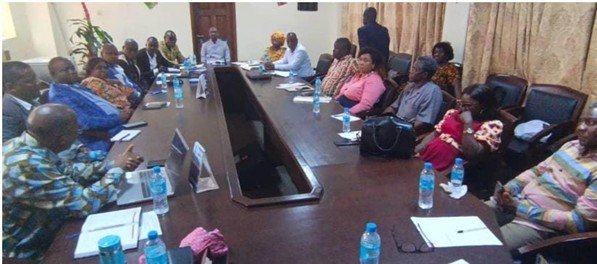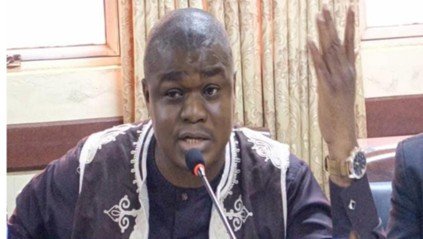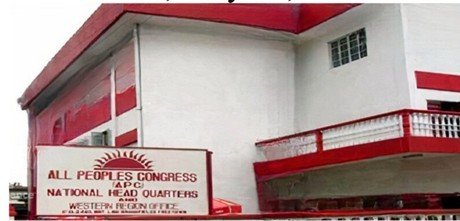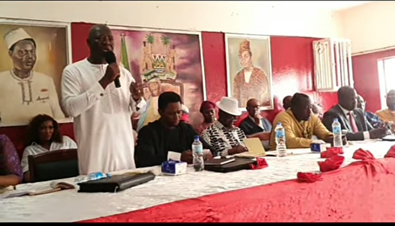Hon. Saa Emerson Lamina, Chairman, Parliamentary Oversight Committee on Technical & Higher Education

The long-stalled IPAM Burehtown building project took center stage during a crucial meeting between the administration of the University of Sierra Leone (USL) and the Parliamentary Oversight Committee on Technical and Higher Education held on 10th September at IPAM Campus in Freetown.
Vice Chancellor and Principal, Professor Aiah Lebbie, informed Members of Parliament that the project has been critically delayed due to unresolved issues, despite a report already being submitted to the Anti-Corruption Commission (ACC) following public concerns. He assured the committee that the same report would be forwarded to Parliament and appealed for their intervention to help revive the project.

“The delay has severely affected our operations,” Professor Lebbie said, noting that IPAM currently runs three shifts daily to accommodate students, a situation that negatively impacts teaching quality and student experience.
The Parliamentary Committee, headed by Deputy Leader of Government Business, Hon. Saa Emerson Lamina, expressed concern over the stagnation of the project and demanded a comprehensive written report for review. Hon. Lamina emphasized the importance of the Burehtown facility in easing overcrowding and improving the learning environment for IPAM students.
Beyond the Burehtown project, the Vice Chancellor also mentioned the University’s major achievements, such as the completion of the USL Secretariat building, introduction of new programs, and progress in implementing e-learning platforms. However, he stressed that financial constraints continue to hinder key initiatives, including staff development, research funding, and laboratory upgrades.
MPs praised the university’s recent strides and pledged to explore ways Parliament can support USL in addressing its challenges. They also encouraged a nationwide campaign to raise awareness on the timely payment of student fees, which they described as essential to sustaining higher education in the country.
By Mohamed Kamara




